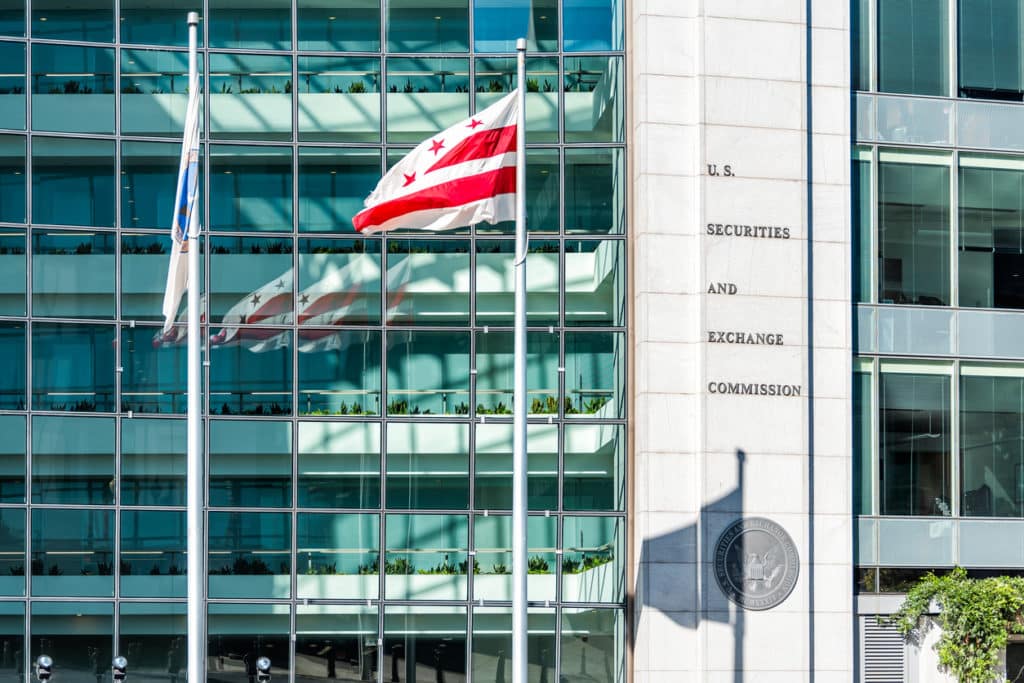On January 21, the U.S. Securities and Exchange Commission (SEC) announced that President Joe Biden appointed Allison Herren Lee as Acting Chair of the agency. Lee will serve as Acting Chair until the Senate confirms a new Chair. On January 18, President Biden announced Gary Gensler as his nomination to be the next Chairman of the SEC.
“Commissioner Lee is a fantastic choice for Acting Chair,” said whistleblower attorney Siri Nelson, who met repeatedly with SEC officials about recent rule changes to its whistleblower program. “She has a strong understanding of whistleblower issues and a commitment to ensuring that whistleblowers are protected and rewarded to the fullest extent of the rules. Lee fiercely embraces the values of awarding whistleblowers and disincentivizing wrongdoers that are at the foundation of the agency’s immensely successful whistleblower program.”
Acting Chair Lee was sworn in as an SEC Commissioner on July 8, 2019 after unanimous confirmation by the Senate. She previously served on the staff of the SEC for over a decade in a variety of different positions, such as Senior Counsel in the Division of Enforcement’s Complex Financial Instruments Unit.
“It’s an honor to continue my service on the Commission in this new role,” Acting Chair Lee said. “I have tremendous respect for my colleagues on the Commission and the exceptional staff across the agency, and look forward to working closely with them. Together we will continue the agency’s work of protecting investors and ensuring market integrity.”
Acting Chair Lee takes over the agency in the midst of a record-setting fiscal year for the SEC Whistleblower Program. Since the 2021 fiscal year began on October 1, 2020, the SEC has awarded over $176 million to 28 individuals – the largest total dollar amount awarded to whistleblowers in a fiscal year.
During her time as an SEC Commissioner, Acting Chair Lee repeatedly voiced her support for the whistleblowers and the SEC Whistleblower Program in particular. In September 2020, she stated that whistleblowers “display extraordinary bravery to expose fraud and wrongdoing, and to shine light in some very dark places. She added that “in doing so, they reinforce our fundamental values – that the rule of law matters, and no one is, or should be, above the law.” At the time, Lee also stated that “[s]ince its inception, the Commission’s whistleblower program has enabled us to identify and pursue fraudulent conduct, ongoing regulatory violations, and other wrongdoing that would otherwise have gone undetected.”
Notably, as a Commissioner, Acting Chair Lee, voted in opposition of last year’s rule changes to the SEC Whistleblower Program. In her dissent, she claimed that “[o]ur program today is working well… What is needed is a thoughtful and limited set of amendments to our rules to enhance efficiency and transparency, without detracting from what makes our program such a success. Unfortunately, that is not what this rule offers. Instead of fixing what is broken, we instead run the risk of breaking what works.” Lee raised concerns with the rule changes which echoed concerns raised by whistleblower advocates.
In her dissent, Acting Chair Lee stated that “[t]he principal reason that I find myself unable to support this rule, despite trying very hard to reach consensus, is because of the treatment given to the central issue of the Commission’s discretion to consider the dollar amount of an award in making award determinations.” According to Lee, the SEC removed a highly controversial proposed rule to cap large awards because it determined that it already has the authority to reduce awards due to their size, and that a new rule was not necessary. Lee opposes the position that the SEC has this authority due to the harm it could cause to the whistleblower program. As whistleblower advocates have argued, reductions to large whistleblower awards could be a disincentive to potential whistleblowers, particularly high-ranking and well-paid officials, and undermine the deterrent effect of the program.
Acting Chair Lee also spoke out against a rule change which grants the SEC the authority to determine which actions are and are not “related actions” and thus the ability to avoid paying “related action” rewards. Lee argued this rule was potentially harmful because by directing whistleblowers to other agencies’ whistleblower programs it “can increase the administrative burden on the whistleblower, who may already be in difficult circumstances,” and “may force them to participate in programs with varying standards of maintaining the confidentiality of their identity.” Whistleblower advocates likewise opposed this rule change.
Acting Chair Lee takes over the leadership of the SEC from Elad L. Roisman, who was appointed Acting Chairman by President Trump on December 28, 2020 following the resignation of former Chairman Jay Clayton. Lee will serve as Acting Chair until the U.S. Senate confirms a presidential nomination for the Chair. It is unclear when the Senate will vote on Gary Gensler, Biden’s current nomination for the position.
Read:
